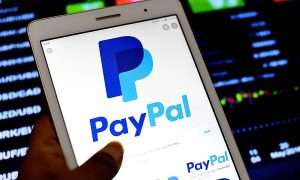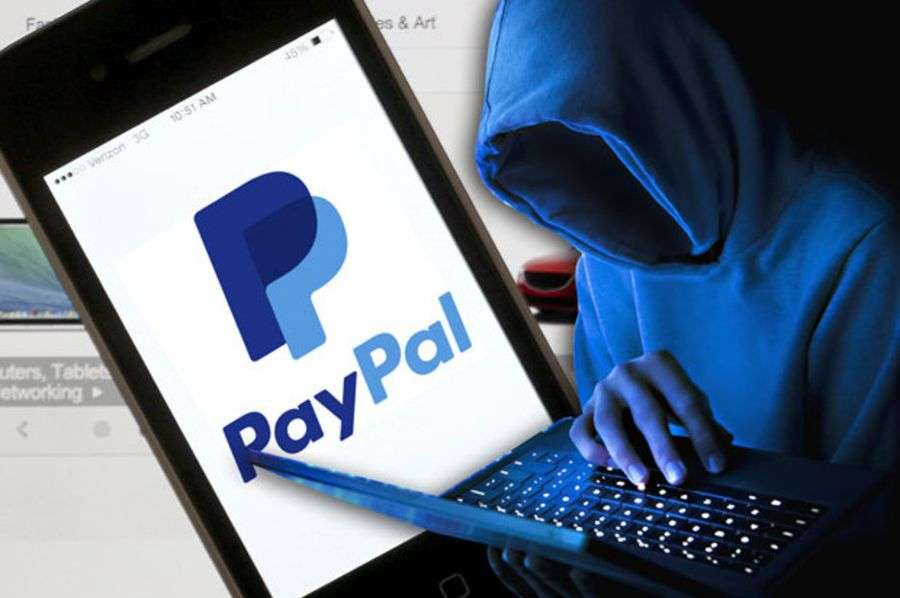We have already told you how to use PayPal so that you don’t have to regret it. But scammers go to new tricks every day to get to the accounts of unsuspecting users and clean their electronic pockets. Today we will tell you which schemes are most often used by criminals.

Letters of happiness and fraud with prepayment
The classic of Internet divorces, the so-called prepayment fraud (advance fee fraud), is quite used in relation to PayPal. You receive a letter saying that you are owed a certain amount of money: allegedly you received an inheritance, won the lottery, you are entitled to compensation for some reason – the number of options is limitless, thanks to human imagination.
To receive money, you need to make a small advance payment (in our case via PayPal) or fill out a questionnaire with personal data. Of course, after making the payment, the senders of the letter will disappear forever, and your personal data from the questionnaire will end up in some database for sale on the darknet.
How to avoid: do not transfer money and do not disclose information about yourself to strangers. “Red flags” in most of these letters will be enough: absurd amounts of winnings / compensation; grammatical errors; the sender’s address, more suitable for a robot than a living person, and so on. The main thing is to be more attentive to everything and not to make hasty decisions.
Notifications about problems with your PayPal account
Divorce number two: Houston, we have a problem. You receive an email supposedly from PayPal, which claims that something is wrong with your account. Some kind of a problem has arisen in him, you see. But it doesn’t matter, the problem can be fixed, the main thing is to follow the link and log in. Bah, it’s very similar to phishing!
In 99% of cases, the link page will look more or less like a real PayPal site, although it is located on a slightly modified domain. All the data that you enter there to log in to your account will instantly go to the scammers. And then it’s not far to hacking.
In particularly severe cases, they may offer to install a certain program that supposedly will help regain access — in fact, it will be a Trojan with all the resulting troubles.
How to avoid: again, look for errors in the letter, left domains that do not match the official address. And in general, PayPal will not inform you about the problem in this way and in such formulations.
By the way, whether the site is real or phishing, you can check using our OpenTip service. Or even easier — install a security solution with protection against phishing and online fraud – it will automatically recognize and block dangerous pages.
Today it happens that phishing links are distributed not only by email, but also on social networks. For example, scammers start a Twitter account under a name like PayPalGifts and start processing gullible users there. Of course, he will be covered up pretty quickly, but he will still harvest some kind of harvest.
Fraud like “refund overpayment”
Now about how scammers can force them to give them money almost voluntarily. One of the most common ways in this category is scams with overpayment. Imagine that you are selling something online. There is a buyer who sends you money, but for some reason the amount exceeds the required amount. The buyer claims that this is a mistake and asks for a refund of the difference.
If you do this, the very first transaction will be immediately canceled: as a rule, hacked accounts are used for such transfers, and when the owner restores access, it is reasonable to demand a refund. As a result, you will lose both the “overpayment” and the cost of the goods. And if you have time to send the parcel, then the product itself.
There are also versions of the scheme where an additional amount is sent to you so that, for example, you pay some intermediary. The essence is the same: you will send your money to the “intermediary”, after which the incoming transfer will be canceled for you.
How to avoid: tell me, have you ever sent by mistake, for example, 2000 dollars instead of 1000? Well, that is, anything, of course, happens, but in most cases such a situation will be a “red flag”. In case of a real error, it is safer for both parties to withdraw the erroneous transaction and re-spend the required amount, carefully checking all the ones, zeros and commas. If the counterparty refuses to do so, we advise you to strain yourself and contact the support service.
Fraud with delivery and withdrawal of payment
Another common divorce concerns delivery. Sometimes scammers pretending to be buyers ask to send goods through their “favorite” service, where they allegedly have a discount. To do this, they are even willing to provide their account there. Never agree to such offers: having access to the account, the crooks will change the delivery address, and then complain about you and say that the goods were not delivered at all.
It also happens that the delivery company turns out to be a fake, and then again, the dishonest buyer will be able to return the money for the goods you honestly sent in an almost legal way.
Another option of such a divorce is related to the substitution of the address. The buyer indicates a fake address, after several unsuccessful delivery attempts, the company asks him where to bring the purchase. After that, he receives the parcel, but again files a complaint against the seller — allegedly nothing came to him. Given the presence of numerous reports of failed delivery, PayPal may believe a fraudster in such a situation.
How to avoid: use only delivery services that are personally verified by you or people you trust. Never send anything before payment and be sure to keep all receipts and receipts.
“Creative” payment schemes
Honest people are also deceived with the help of murky payment schemes. For example, PayPal has an option to transfer money for family and friends, there are reduced rates. Sometimes scammers ask to transfer money in this way to save on commission, and promise to make a discount for it.
That’s just according to the rules of the platform, this method is not intended for payment for goods, which means that no buyer protection program applies to such transfers. Needless to say, you will no longer see the money sent, as well as the goods.
This also includes any proposals to transfer money in an alternative way, allegedly more convenient, profitable or corresponding to the philosophical and ethical views of the seller. In general, if your interlocutor insists on something like this, starts hanging noodles on your ears or rushing you (the last chance to make a deal, I’m flying to Blagoveshchensk in an hour for 20 years), most likely something is wrong here.
How to avoid: ignore requests to pay for the goods in other ways. PayPal has very good protection programs for both sellers and buyers, but they work only for standard transfers within the platform.
A banal divorce for money under the pretext of charity or investment
They say there is a separate cauldron in hell for people who send fake offers about charity and investment opportunities. Often these bad people accept “donations” or “contributions” on PayPal. To cancel such a payment, if the scammers promptly demand it (and they will certainly try to do it), most likely, it will no longer work. So it is necessary to check everything in advance.
You need to be especially attentive to requests for charitable donations during natural disasters and other major force majeure – be sure, there will be crooks somewhere who want to cash in on someone else’s misfortune.
“Favorable offers” can arrive at any time and are often characterized by promises of fabulous profits without any special risks, without registration and SMS — you know, the truth of life usually looks different.
How to avoid: to avoid such deceptions, be sure to audit the offer. Check the reputation of a charitable foundation (or an investment company), and best of all, if you have acquaintances or friends who have worked with it and can confirm its legitimacy. To check charity on the Internet, there are special services such as Charity Navigator, Better Business Bureau and Charity Watch.
How to avoid trouble on PayPal
Let’s summarize and formulate general tips, following which you can protect yourself from most attempts of deception, account hijacking and other troubles:
Look for “red flags” in letters and messages: grammatical errors, whipping up a sense of urgency or danger, email addresses and links that differ from the official ones (even by one letter).
In general, you should not believe the letters unconditionally, be sure to check everything through your personal account on the website or in the PayPal application (first of all, this applies to receipts for crediting funds).
Never use delivery services that you do not know, and send the goods only to the address specified in the transaction card
Avoid alternative money transfer methods that fraudsters may offer: they are not covered by PayPal protection programs.
If the offer is so captivating that it seems unrealistic, most likely it is.
Do not give out personal information to your interlocutors or counterparties, other than what is necessary for the transaction. Especially if someone asks, for example, to confirm the password.
Do not download additional software or any other suspicious files that may be sent to you in emails. PayPal definitely never does this.

